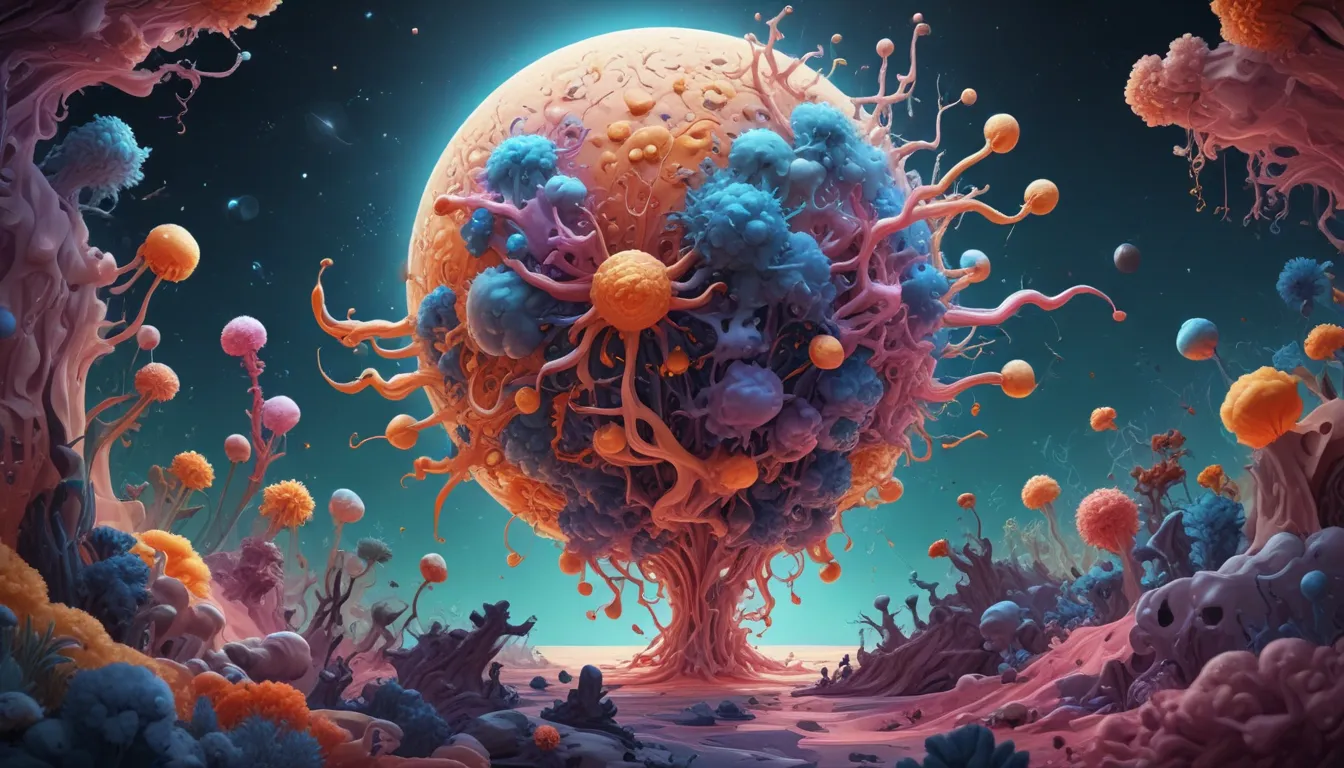A Note About Images: The images used in our articles are for illustration purposes only and may not exactly match the content. They are meant to engage readers, but the text should be relied upon for accurate information.
Are you ready to embark on a journey through the extraordinary world of antibodies? These remarkable molecules are the unsung heroes of our immune system, tirelessly defending us against harmful pathogens and foreign invaders. In this article, we will delve into 19 fascinating facts about antibodies, shedding light on their crucial role in safeguarding our health and well-being. From their diverse functions to their incredible specificity, we will explore the captivating world of these tiny warriors that work tirelessly to keep us safe.
The Marvel of Antibodies
Antibodies, also known as immunoglobulins, are indispensable components of our immune system, playing a pivotal role in protecting our bodies against harmful pathogens. Produced by our body’s white blood cells, antibodies possess a unique ability to recognize and neutralize specific antigens, serving as the first line of defense against invading microorganisms.
Unveiling the Types of Antibodies
There are five major types of antibodies, each with its distinct functions and characteristics. IgG, IgM, IgA, IgD, and IgE are the primary players in our body’s immune response, working in harmony to combat various threats and maintain our overall health.
The Production Process
B cells, a specialized type of white blood cell, are responsible for generating antibodies in response to the presence of antigens. This intricate process ensures that our immune system can mount a targeted response to specific threats, enhancing our ability to ward off infections and diseases.
The Power of Recognition
Antibodies possess the remarkable ability to recognize and bind to specific antigens, marking them for neutralization by the immune system. This targeted approach enables antibodies to identify and eliminate harmful pathogens, preventing them from causing further harm to our bodies.
Neutralizing Pathogens
When antibodies bind to antigens on pathogens, they can effectively neutralize their harmful effects, preventing them from infecting our cells and spreading throughout our bodies. This neutralization process is a crucial mechanism by which antibodies protect us from diseases and infections.
Activating the Immune Response
Antibodies can activate the complement system, a group of proteins that work together to eliminate pathogens. By triggering this innate defense mechanism, antibodies amplify the immune response, enhancing our body’s ability to combat infections and stay healthy.
The Therapeutic Potential
Monoclonal antibodies, artificially produced antibodies, have been harnessed for various therapeutic purposes, including the treatment of cancer and autoimmune diseases. These innovative treatments have revolutionized modern medicine, offering new hope to patients battling complex and challenging conditions.
The Unique Structure of Antibodies
Antibodies feature a distinctive Y-shaped structure, with two arms containing antigen-binding sites that enable them to recognize and bind to specific targets. This specialized design allows antibodies to tailor their response to different antigens, enhancing their effectiveness in combating diverse threats.
Long-term Immunity
After an infection, some antibodies can persist in the body for an extended period, providing long-term immunity against the same pathogen. This memory response ensures that our immune system can mount a swift and robust defense upon future exposures, offering lasting protection against recurring threats.
The Gift of Maternal Antibodies
Pregnant women can transfer antibodies to their unborn babies through the placenta, providing temporary protection against certain diseases during the early stages of life. This maternal transfer of antibodies offers infants a crucial shield against infections until their immune system matures and develops its defense mechanisms.
Diagnostic Applications
Antibodies are vital components of various diagnostic tests, such as antibody-based assays, which detect the presence of specific antigens or antibodies in patient samples. These tests play a critical role in diagnosing diseases, monitoring treatment responses, and guiding clinical decisions, ensuring optimal patient care and outcomes.
The Evolutionary Advantage
The process of genetic recombination allows B cells to generate a diverse array of antibodies, increasing the likelihood of recognizing different antigens. This evolutionary strategy ensures that our immune system can adapt and respond to a wide range of threats, enhancing our resilience against infections and diseases.
Facilitating Pathogen Clearance
Antibodies can act as opsonins, molecules that mark pathogens for phagocytosis, the process by which immune cells engulf and destroy foreign invaders. By enhancing the clearance of pathogens, antibodies support the immune system in neutralizing threats and maintaining our overall health.
A Tool for Scientific Research
Scientists utilize antibodies as invaluable tools in various research fields, including immunology, molecular biology, and biochemistry. By leveraging the specificity and versatility of antibodies, researchers can study proteins and their functions, unraveling the intricate workings of the human body and advancing our knowledge of disease mechanisms.
The Precision of Specificity
Each antibody possesses a highly specific binding site that can recognize and bind to a particular antigen, ensuring targeted immune responses tailored to the specific threat. This precision allows antibodies to mount an effective defense against pathogens while minimizing collateral damage to healthy tissues.
Enhancing Immune Responses
During an immune response, antibodies can undergo affinity maturation, a process where their binding affinity to antigens improves over time. This maturation process enhances the effectiveness of antibodies in neutralizing threats, ensuring a more robust and efficient immune response against infections and diseases.
Navigating Cross-reactivity
At times, antibodies may cross-react with antigens that share similarities with the target antigen, a phenomenon known as cross-reactivity. While this process can have implications in autoimmune diseases, it also highlights the adaptive nature of the immune system and its ability to respond to diverse threats with a degree of flexibility and versatility.
Harnessing Engineering Innovations
Through genetic engineering techniques, scientists can modify antibodies to enhance their therapeutic properties or develop antibodies with novel functionalities. This innovative approach opens up new possibilities for targeted therapies, personalized medicine, and tailored interventions, offering promising avenues for improving human health and well-being.
Supporting Immunological Memory
Antibodies play a vital role in the establishment and maintenance of immunological memory, allowing the immune system to mount a faster and more robust response upon subsequent encounters with the same antigen. This memory response ensures that our bodies can effectively combat recurring threats and maintain long-lasting immunity against infectious agents.
Conclusion
In conclusion, antibodies are truly remarkable molecules that serve as the backbone of our immune system, safeguarding our health and well-being against a myriad of threats. From their diverse functions to their unique structure and specificity, antibodies play a critical role in protecting us from infections, diseases, and other health challenges. By unraveling the mysteries of antibodies and exploring their fascinating properties, we deepen our understanding of the complex and intricate workings of the immune system, paving the way for new discoveries and advancements in medical science.
As we continue to unlock the secrets of antibodies and harness their therapeutic potential, the future holds immense promise for leveraging these molecular marvels to combat diseases, improve patient outcomes, and enhance human health. By appreciating the incredible complexity and adaptability of antibodies, we can move closer to a world where innovative therapies and preventive measures offer hope and healing to individuals facing health challenges.
FAQs
-
What are antibodies?
Antibodies are proteins produced by our immune system to neutralize and eliminate foreign substances called antigens. They play a crucial role in defending our bodies against infections and diseases. -
How do antibodies recognize antigens?
Antibodies have specific binding sites that can attach to unique molecular markers on antigens, allowing for precise recognition and targeting of these foreign invaders. -
Can antibodies be artificially produced?
Yes, antibodies can be artificially produced through techniques such as monoclonal antibody production, enabling researchers to develop targeted therapies and diagnostic tools for a wide range of medical conditions. -
How long do antibodies stay in our body?
The lifespan of antibodies varies depending on the type and individual, with some antibodies persisting for weeks or months and memory antibodies providing long-lasting immunity for years. -
Can antibodies target specific diseases?
Yes, antibodies can be engineered to target specific diseases by designing them to recognize antigens associated with the disease-causing agent. This targeted approach holds great promise for personalized medicine and tailored treatments.
As we conclude our exploration of antibodies, let us continue to marvel at the incredible capabilities of these molecular warriors and the profound impact they have on our health and well-being. By fostering a deeper understanding of antibodies and their role in our immune system, we can cultivate a greater appreciation for the complex mechanisms that protect us from harm and pave the way for a healthier, brighter future.





